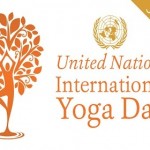On June 21, elaborate celebrations in New Delhi will mark the first United Nations International Day of Yoga. What this UN day highlights is part of a process that has been unfolding for well over a century and transcends the boundaries of nation states.
In India, this process is commonly perceived to date back to Swami Vivekananda’s address at the Parliament of World Religions at Chicago in 1893. When the young Hindu monk declared that all humans are “children of immortal bliss”, he was sharing a philosophical and spiritual truth that transcends human-made boundaries of race, religious doctrine, and nationhood.
In the decade that followed, Vivekananda exerted a substantial influence in intellectual circles on both sides of the Atlantic. This was largely because he powerfully expressed the transcendent dimensions of Indic spiritual and philosophical traditions. A century later, Vivekananda is remembered simultaneously as a universal icon of communal harmony and a Hindu nationalist “missionary”. And yoga, a corollary of this philosophy’s practice, has spread across the world.
However, the ever-increasing global popularity of yoga is not just about a cultural resurgence of India. More crucially, it signals a shift in the politics of knowledge. For much of the last two centuries, since just before the dawn of the Euro-centric industrial revolution, science was based on a narrow materialist definition. Realms of experience and reality that are not testable in laboratories were dismissed as irrelevant.
This is why traditional health therapies, from different corners of the world, are not covered by many insurance policies in most western countries. This has been slowly changing over the last four decades, as much of modern science has been critiqued for not encompassing many dimensions of reality—and thus the rise of holistic science, particularly in the sphere of health-related therapies.
Yoga is already the leading form of therapy and health regime among systems that have travelled from the east to the west. In the U.S. alone the yoga industry, which includes classes and sales of assorted paraphernalia, is estimated at $10 billion a year.
The recognition of yoga by the United Nations—an honour for the Indic civilisation—is almost a culmination of a long process. But it is a still greater triumph for all those who, regardless of their nationality, are seeking to promote holistic knowledge systems and related therapies for human well-being across the world.
The UN’s decision is part of its mandate to promote healthier choices by individuals and entire populations. By its resolution of 11 December 2014, creating the International Day of Yoga, the UN has recognised that “… yoga provides a holistic approach to health and well-being” and that “… wider dissemination of information about the benefits of practicing yoga would be beneficial for the health of the world population…”
Controversies about what truly qualifies as yoga, and what is just an “unyoga” set of physical exercises, will persist. What matters in these disputes is not conformity with the original systems that were born in the land that is now the Indian nation state. Instead, what is far more relevant is rigorous work on the parameters and criteria of what constitutes holistic knowledge systems.
The stamp of recognition by the United Nations will hopefully strengthen both academic efforts in this sphere and public spending in support of related holistic therapies across the world.
Rajni Bakshi is Senior Gandhi Peace Fellow, Gateway House.
This blog was exclusively written for Gateway House: Indian Council on Global Relations. You can read more exclusive content here.
For interview requests with the author, or for permission to republish, please contact outreach@gatewayhouse.
© Copyright 2015 Gateway House: Indian Council on Global Relations. All rights reserved. Any unauthorized copying or reproduction is strictly prohibited.


